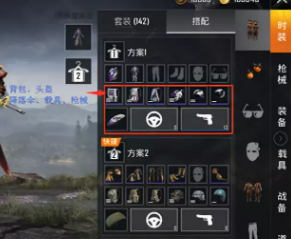digital currency stock Top Knowledge graph
The "seesaw" performance of blue-chip stocks and small-cap stocks is vividly interpreted in this round of market. Large-cap blue chips and core assets with stable operation and better fundamentals have obviously underperformed the small-cap sector of emerging technology sectors.Micro-disk stocks hit a new high. When will the market style return to the fundamentals after the significant differentiation of large and small disks?What are the reasons why more resilient blue chips are not popular in the market? Many people in the industry interviewed by reporters believe that the macro-economy has not yet recovered significantly, and the uncertainty of the pace of monetary and fiscal policies next year has led to the fact that although the weighted blue-chip stocks have a low valuation advantage, they have not obtained the unanimous expectation of funds.
It is worth noting that the Political Bureau of the Communist Party of China (CPC) Central Committee held a meeting on December 9 to analyze and study the economic work in 2025. According to industry analysis, the overall tone of this meeting was positive, and the macro policy is expected to continue to increase next year. The meeting put forward "strengthening the regulation of unconventional and countercyclical policies", which was the first time that a major meeting mentioned the word "unconventional", or indicated that the follow-up policy measures would be more diversified. The importance of domestic demand expansion is further highlighted, and the scope and intensity of subsequent consumption promotion policies are expected to increase.In this context, blue-chip stocks maintained their performance resilience. In the third quarter, the single-quarter growth rate of large-cap net profit represented by Shanghai and Shenzhen 300 increased significantly, with an increase of 8.75%. The performance of small and medium-sized stocks represented by CSI 500 and CSI 1000 dropped significantly, with growth rates of -14.7% and -9.4% in the third quarter respectively. In terms of industrial chain style, finance has been greatly restored, consumption has remained resilient, growth has continued to be under pressure, and the cycle growth rate has turned negative.It is difficult for investors who focus on fundamentals to exert their fists and feet in this round of market, and investors who chase small-cap stocks with hot topics make Public Offering of Fund products far behind.
According to the research report released by SDIC Securities on December 8, if we want to treat this wave of "new year's market" with "innovation", it is necessary for the US dollar index to clearly turn from strong to weak and the fiscal expenditure to enter a clear expansion cycle. The pricing of risk preference turning to fundamentals may have to be further confirmed in the second quarter of next year (strong dollar turning to weak dollar+stimulus policy effectively reversing domestic demand). Looking back at history, after M1 rebounded from the bottom for two consecutive months, the market sector represented by consumption and pro-cyclical sectors will start pricing around fundamentals, which also means that if the growth rate of M1 continues to rebound in November, this extreme differentiation pricing model of large and small markets is expected to be gradually reversed.What are the reasons why more resilient blue chips are not popular in the market? Many people in the industry interviewed by reporters believe that the macro-economy has not yet recovered significantly, and the uncertainty of the pace of monetary and fiscal policies next year has led to the fact that although the weighted blue-chip stocks have a low valuation advantage, they have not obtained the unanimous expectation of funds.The "seesaw" performance of blue-chip stocks and small-cap stocks is vividly interpreted in this round of market. Large-cap blue chips and core assets with stable operation and better fundamentals have obviously underperformed the small-cap sector of emerging technology sectors.
Strategy guide
12-13
Strategy guide



Strategy guide
12-13
Strategy guide
Strategy guide
12-13
Strategy guide 12-13
Strategy guide
Strategy guide
Strategy guide
12-13
Strategy guide






























